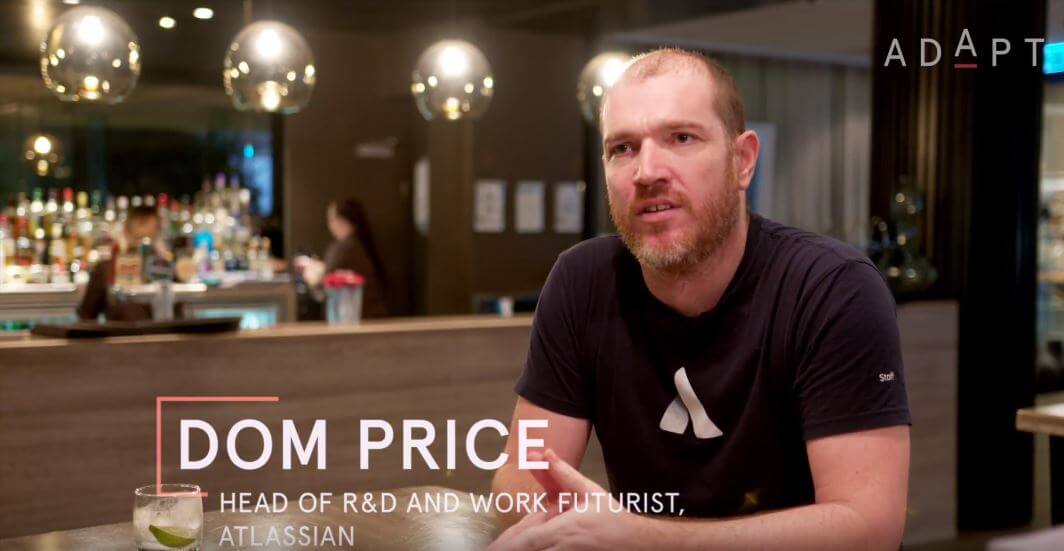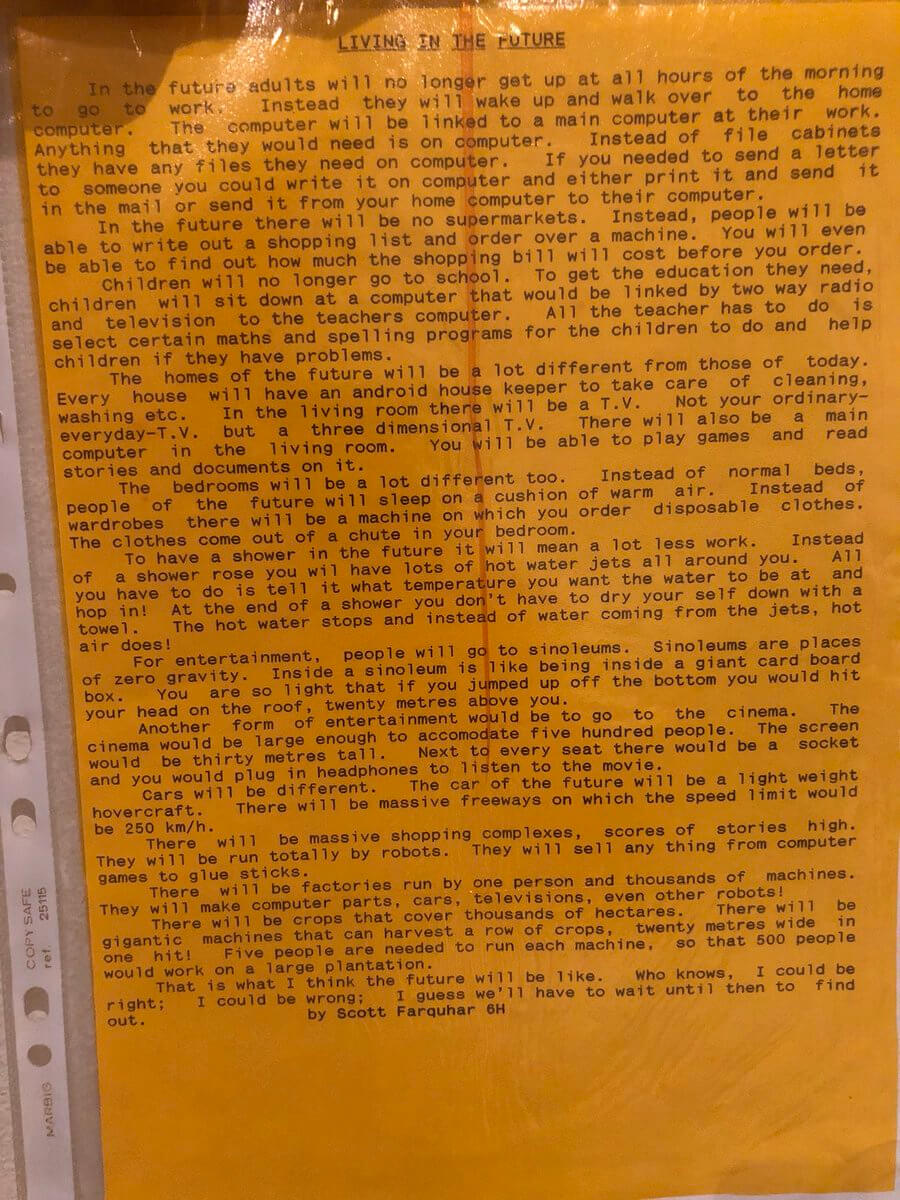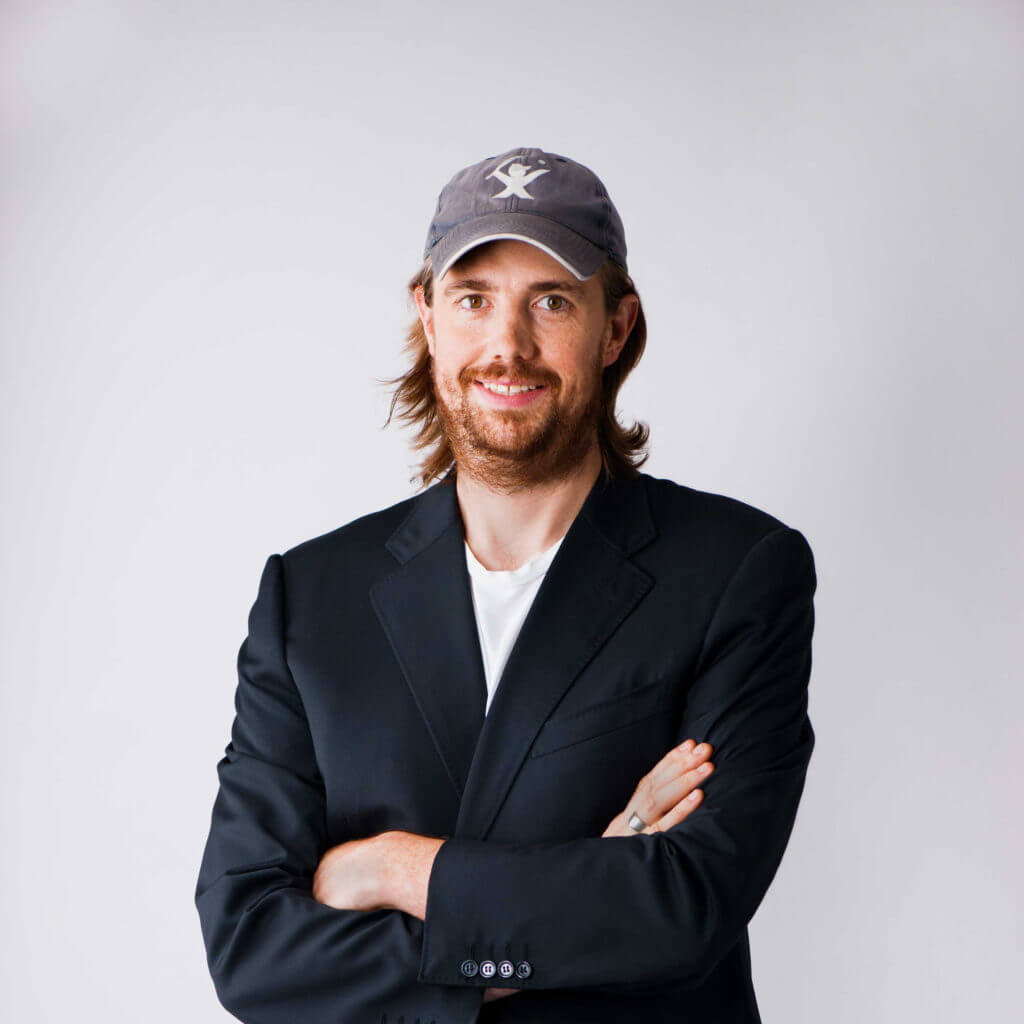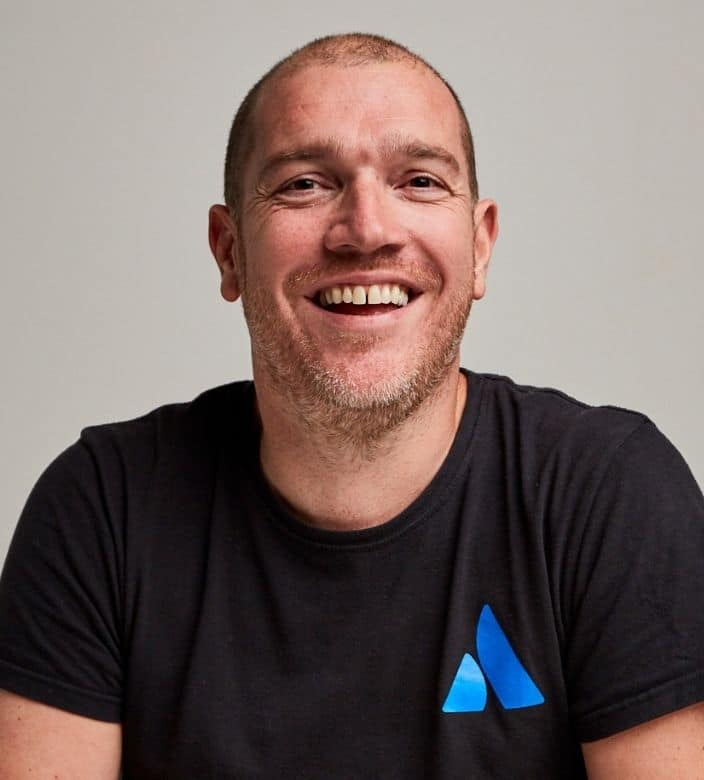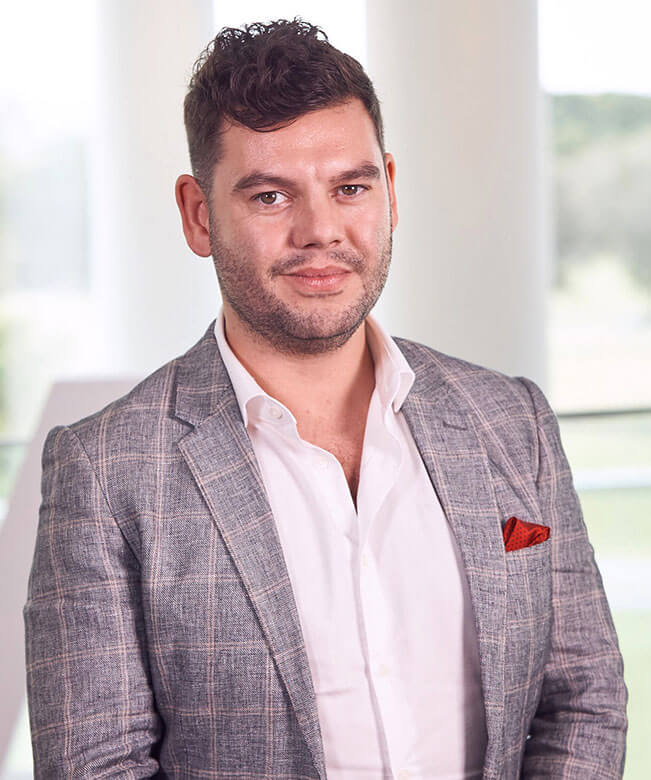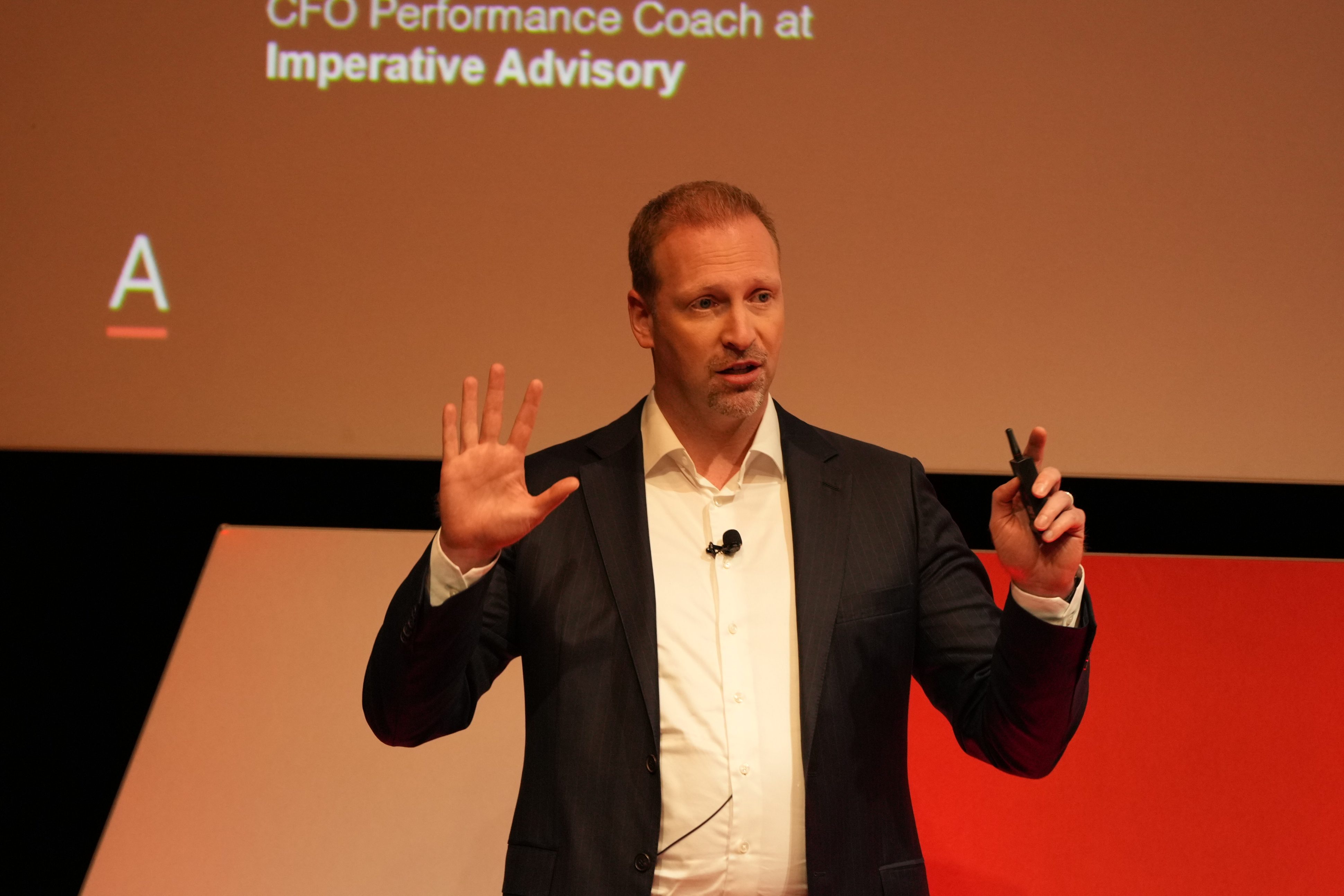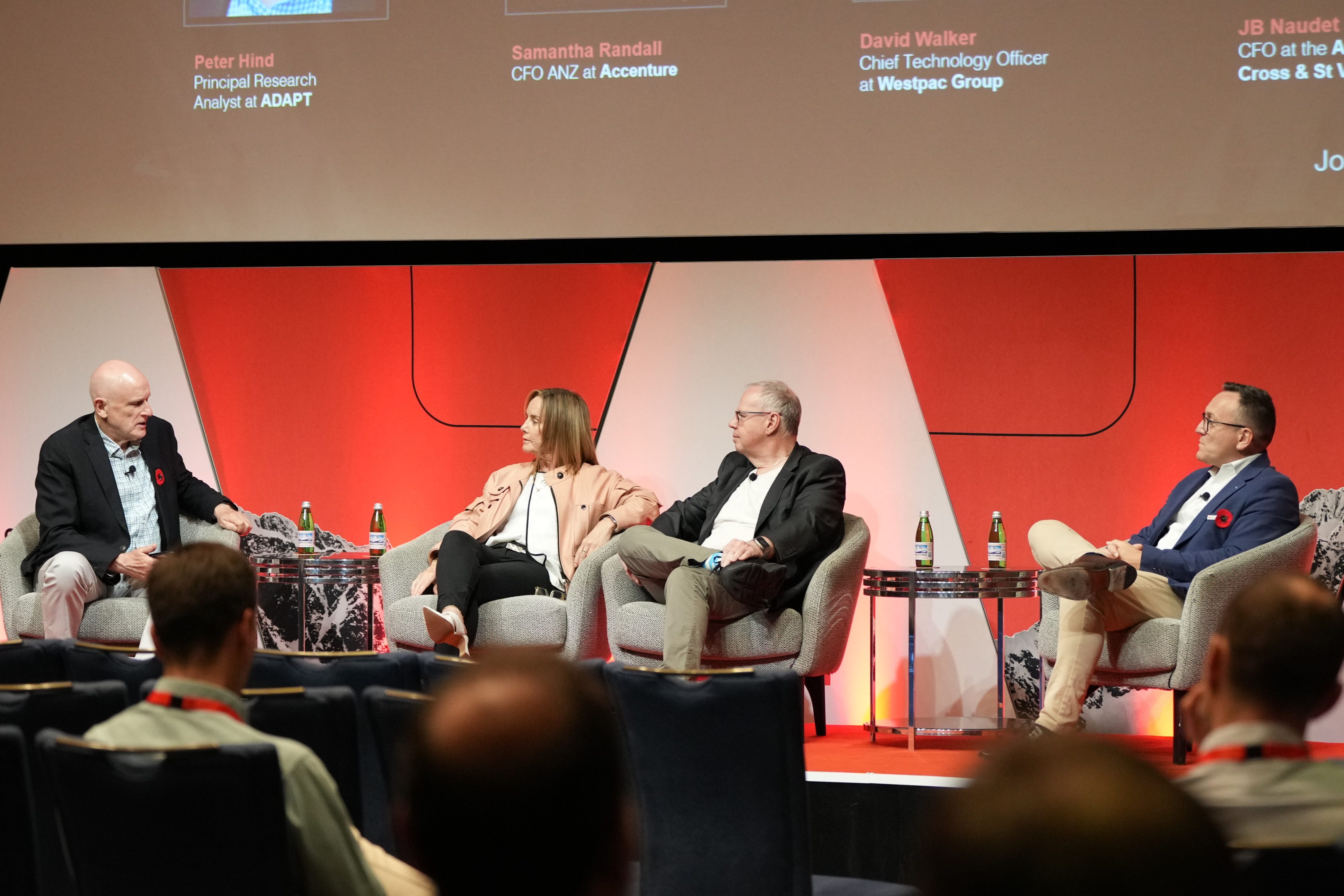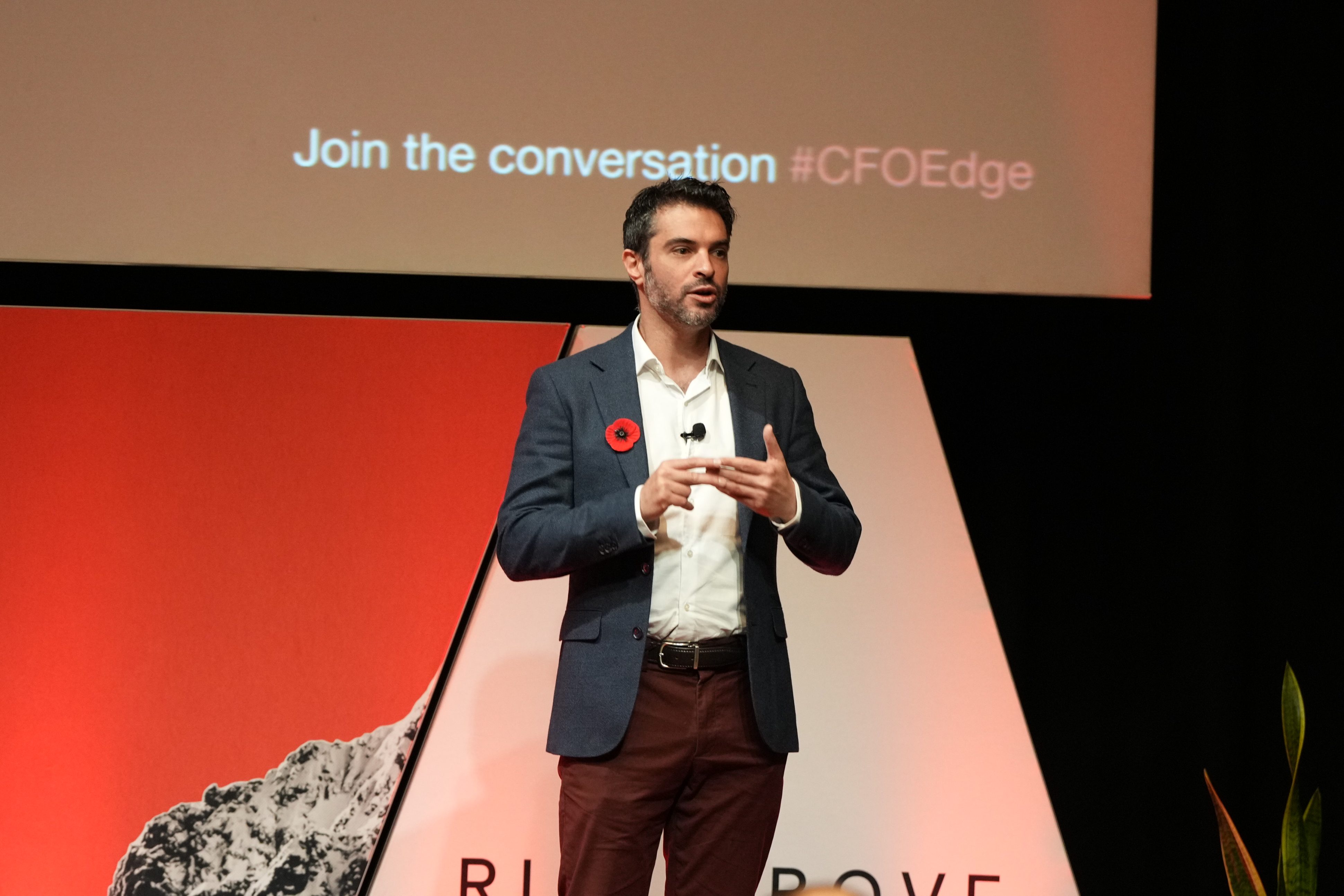As Head of R&D and Work Futurist at Atlassian, Dom Price studies the dynamics of successful teams from around the world and identifies the strategies that enable them to foster innovation, create true collaboration and ultimately be more human.
Dom recently sat down with Matthew Hanley (Partner, ADAPT), to discuss the importance of executive networking and knowledge sharing; culture; transformation techniques; skilled labour migration legislation; the future of work and much more.
At ADAPT’s CIO Edge conference, Dom sat down with Matthew Hanley.
Video Transcript
Matthew Hanley, ADAPT’s Partner: Why is it important for business leaders to attend ADAPT’s Digital Edge Experience?
Dom Price, Head of R&D and Work Futurist: It’s really important for me and I think it’s also really important for Australia as a business community to actually gather and find out what are the reasons, what are the barriers that are stopping us from making the changes that we know we need to make. When we talk about silos being the thing that’s blocking us from making digital transformation effective, it kind of bothers me because silos have existed for hundreds of years. In fact, we probably all created them. So what I want to do is get those people together and have that honest conversation. What are the things we’re doing that are working? We should do more of them and share them. What are the things that aren’t working? We should also share those. And then how can we actually work collaboratively, truly collaboratively together to actually make those things happen.
Self-development is a fascinating one. I think we massively undervalue self-development. If I look at most leaders I speak to, the percentage of time they actually spend learning is way too small. If you think about the rate of change in society, the rate of change in business, we are spending a lot of time doing, like 98% of our time doing, and about 2% learning. You compare us to elite sports teams or elite military teams, it’s the other way around. They’re spending 90% of their time learning or training and developing, and then 10% or less doing. I think conferences and events like this give us a chance just to come out of our bubble, come out of our world and find the analogies. For me, I rarely learn something specific from another individual that I go and plug in tomorrow, but I learn about something that’s working in that business or not working, and it gives me a chance to go, “How would I deal with that? What if I came up against that problem, what would I do? And who are the people I could talk to learn more about that?”. I think those relationships become very valuable.
What allows or holds businesses back from “Transforming At Scale”
I think transforming at scale is almost a bit of a tricky statement in itself. So transformation almost suggests this end game, and I think where traditional businesses are getting hung up is they’re building these two, three-year plans with a high level of alleged certainty that get them to transform to the place they should have been in the first place, and actually that’s not real. I think the transformation at scale is around accepting the pace of change, the rate of change in our economy, in technology, in people, in the world, in the whole business world and saying, “How do we adapt to that? And how do we adapt that to that through being more agile or through having agility?”. I think transformation at scale requires us to be more honest. It requires us to reflect on the past and pay homage to it, but not let that heritage kind of grab us around the neck like a noose and hold us back. None of us run a museum, so how do we drag our businesses, kicking and screaming, into the current and into the future?
I think that transformation requires us to alter the way we work and to do that as humans. I think that’s something that every company, large, small, traditional, non-traditional is grappling with. How do you stay relevant in an economy, in a business world that changes so quickly?”
“Head of R&D and Work Futurist at Atlassian” sounds like an obscure role. What does it entail?
When I think about my role, I think it’s almost going to be a role that you see more and more of in the future, all right? There’s a rush now behind it. Half my role is internally focused. How do we scale at Atlassian? We’re running more people, more customers, more technology, more products, more competitors. We’re running more of everything every single day, so I’m living in a world of exponential change. Internally, we have to adapt and evolve at a rapid rate. As we do that, we want to go and tell our story externally, so the futurist part of the role, to understand from other organisations from all shapes and sizes, what are the things that are going well? What are things they’re struggling with?
The more we understand that the more I can take back to Atlassian to evolve our way and the more I can take externally. It’s actually a very tight loop. The reason I think we’ll see more of it is my real concern when I look at some of the data you guys have shared, and when I speak to some of the people at events like this, we’ve become very internally focused. We’ve become very internally focused, and actually, there’s not enough conversation about how would we build the right organisation or the right technology or the right digital structure for the customer. For me, my role encompasses 50% of internal, 50% external. I think that purview on what’s happening in the outside world is invaluable to me and my role.
“Scaling team culture” – Traditionally when companies scale they lose their mojo. Why has Atlassian been able to do this so effectively?
I think we’ve managed to scale effectively by doing a lot of unlearning. We stop a lot of things. Things that work when we’re 500 people, didn’t work when we were 1,000 and didn’t work at 2,000, and might not work if we reach 5,000. Having the ability and freedom just to pause, look back, learn … We have to learn from what worked, and we carry that forward. Learn things that won’t carry forward, and we stop doing them. That action of unlearning is very powerful because it gives you the freedom of time to try something new.
The second thing is we spend a lot of time experimenting and exploring. We have a notion of trying it, not proving it. Try it means, I’m willing to go do something different that may or may not work, and learn from it, and share those learnings.
I think the third one, probably the most powerful thing that’s enabled us to scale effectively, is our values. Things like an open company, no bull shit. Play as a team. We genuinely believe that the lone genius is dead, and the best way to solve complex problems is a cognitively diverse team. If you have small nimble teams, you get agility and autonomy as a by-product of that. And so, we might be … we’re probably two and a half thousand people globally at Atlassian. We’re about 420 active teams. Lots of small nimble active teams, so that when you need to course correct when the world around you changes, it’s easy to steer smaller ships, than it is to steer one giant ship.
I think that’s the way we’ve effectively scaled, and we continually look at that through things like team health and accessing our team health and ways of working that don’t have bureaucracy, and process and standardisation on something that is uncertain and isn’t predictable.
A big passion for you is around “High-Performance teams” how do you define high-performance teams and is productivity the wrong measurement?
I’ll let you into a little secret, just between me you and no one else, right? No one else can ever know this. So, no one else can ever know this, because high-performance teams don’t exist. The idea that you can land on this finite, we are now a high performing team, I just think the rate of change we’re going through in business, that’s a crazy goal.
What we look for is how can you help teams drive continual improvement? How can you make them self-aware? How can you build emotional quotient and emotional knowledge of the awareness of how they’re performing? And then how can you equip them to be the best version of themselves every day? And that often means identifying the areas where you’re struggling, which you wouldn’t associate with high performance. High performing teams are perfect at everything, and I just don’t think that exists.
The reason I’m passionate about this issue, is I don’t think in my lifetime I’ll solve this or anyone else will solve it. I don’t think we’ll land on these are the five ingredients of the perfect team and off we go. Because every team’s a different environment, solving a different problem, hopefully working with different personalities, different cognitive diversity, and backgrounds and experience. It’s going to be difficult.
If I think about collaboration as an example, it’s got confused with consensus. I enjoy a healthy argument with my peers, where we’re at a whiteboard and we’re thrashing it out. And we look like we’re arguing, but we’re bringing our best selves. That’s high performance because that enables us to actually challenge each other. Challenge the status quo. Understand each other’s blind spots, and we believe that whatever we land upon, whatever we agree on, in the end, will be way better than any of us could have done by ourselves. And so, teams for me are the future of how we solve complex problems, but we’ve got to sign up for the fact that it’s messy and scrappy, and it’s hard work. And it feels like attacks, but I actually firmly believe it’s an investment.
People and Culture can be a barrier or challenge for some companies who are undergoing Business Transformation – What advice can you give other businesses?
People and culture is a fascinating topic for me. People, because every business, as far back as I can remember, has required people, and have claimed that people are their biggest asset. The thing is, I think we’ve forgotten how to be human. I think, in the last 20 years, I’ve seen people act more like machines than like humans. If you think about the unique human’s skills we have, empathy, creativity, curiosity, the things we can do that machines can’t, we’ve kind of educated those out of children. Kids are taught that if you talk to other people, that’s cheating. And then you join the workforce, and we call that collaboration. We need to fundamentally change how we see the role of humans in work. I think culture is something that we’ve fascinated over and we’ve got it completely wrong.
For me, if you focus on values, and then you actually enable multiple cultures to develop, and culture to evolve, that’s actually the right thing to do. When I hear about organisations that think they have a singular culture and they do what they can to recreate that culture in multiple locations, that for me sounds scary because you’re killing diversity, you’re killing inclusion, and you’re forcing a culture on others.
If I think about Atlassian, each of our teams has its own unique culture. Each of our locations, each of our functions, and we give them that freedom. What’s not up for debate are our values and how we work. Things like, don’t F the customer, is something that whatever team you’re in, whatever location, whatever role you play, the customer is at the forefront of everything that we do, and we will never, ever screw them over.
And that’s a value that we keep, but our culture, in the five years that I’ve been with Atlassian, has changed every day, week and month, and that’s cool. The thing with culture is I think we try and manipulate it, but it’s an outcome. Culture is an outcome of the people you hire and the values that you employ. So, don’t try and tweak the outcome, tweak the input, right? Tweak the actual values you have in the people you hire, and that will create the culture.
Atlassian is universally known for its culture. What do you mean when you say you have “a culture of innovation”?
The culture of innovation thing was an important philosophy for us in saying, “We believe everyone has innovation within them.” So, what that means, is we don’t have innovation rooms, innovation labs. We don’t decree innovation in the most senior people, who by the way, are often the most conservative, and the most constrained, and the furthest one away from the coal face. What we say is that everyone has the right and the ability to innovate. The first way we do that is through our values. One of our values is, “be the change you seek.” Every employee is a co-owner of Atlassian. And we say, “If you don’t like something, don’t be a bystander, take action, work on it.” And that just creates a generic culture of innovation everywhere. The second way we kind of mimic from places like Google, which is 20% time. A lot of our teams have adapted that and now do innovation week instead. They do a whole week where they work on stuff together. It’s like spring cleaning and housekeeping for their teams, and that’s like incremental innovation.
The third way is full disruption, which is “ship it”. Once a quarter, so every 90 days, everyone gets the chance to down tools for 24 hours. You can work on whatever you want, with whoever you want for 24 hours. And the one rule is at the end of that, you’ve got to pitch your idea. You get three minutes to do a lightning talk to your peers. And we get ideas of all shapes and sizes, some funny, some serious. New products will come out of it. Process changes will come out of it. A huge amount of stuff comes out of it. But essentially what you’re saying to every single employee is, you own this innovation. We’re going to give you the freedom and the space and the time and go for it. And that’s where this culture becomes the norm because it gives you the chance to scratch the edge. What happens is, at the end of ship it, people already start sort of ideating and sharing things that they could work on next ship it. And what they do for 90 days is they keep their eyes open for anything that they might want to change, because they know they’re going to get the freedom to do it.
Not something decreed from management, and not the best ideas from the most senior people, but ideas that can come from anywhere, and be implemented in that time.”
It’s incredibly simple. Some things that we added recently, things like the unplug prize to get non-technical companies entries. A lot of people think hackathons and “ship its” are just for technical teams. We have teams of all sort of marketing, HR, legal finance taking part. They have ideas too. You don’t have to be a developer to have ideas. The other thing we did recently was we added a room for our finals called “The Titanic Room.” It was great ideas that hit an iceberg along the way. So, we find that sharing our failures is often as valuable, if not more valuable, than the things that succeeded.
“The Atlassian Team Playbook” – your team published a no-bullshit guide to unleashing your team’s potential. What’s in the playbook? Why make it open-source?
The playbook was something originally, we selfishly developed internally. It was our way of working to help us scale. And we started it because we felt like we were nibble and agile, we had autonomy and master, we had all those ingredients. We were worried as we grew, as we scaled, that we’d lose them. So, the playbook was around saying, how could we build self-awareness, these things called health monitors. How teams assess how they work together. And then plays, what are the exercises you do to improve? We’ve run with it for about two years internally. And then Mike, one of our co-founders, essentially sat me down one day and said, “Instead of it being a secret sauce, why don’t we just make it a sauce?” I think that’s why he gets paid the big bucks. So, we decided to open source it, to share it with the world.
The reason I’m not nervous about sharing IP, is I know the value that we get from it, is how we apply it. And actually, by sharing that IP, sharing all that knowledge, it doesn’t give you the value. Until you choose to apply it, you choose to do something with it. But also, the reason I don’t mind sharing it is our mission is to enlist the potential in every team. I firmly believe teams potential is unleashed by human to human interaction, collaboration, finding better ways of working. And if I can give teams inspiration to do that and make them more effective, that’s going to make everyone better off.
It doesn’t have to be a technology solution that drives our disruption and change, we can do it by being more human, as well.
You use the term “Become More human” – What areas are businesses not talking about that they really should be?
Three biggest kinds of hot topics for me right now are things we’ve kind of we’re not properly dealing with. The first one is as automation and robotics take away the mundane tasks, and we’re doing more and more hours, who’s looking after our cognitive load?
Back in the last Industrial Revolution, you got calluses on your hands, if you worked hard, but who can see the calluses on mine and your brain? Who can tell if we’re suffering? And I don’t think mental health is something we ever want to cure, I think we owe it to each other to prevent and not cure.
The second one is, as technology becomes more pervasive, how do we understand the working hours, and the discipline required to have balance? Whether we work-life balance, or work-life integration, whatever we want to call it this month, how do we make sure people don’t burn out through working more? When actually, we want them to do less work and just be more effective.
And the third one, which is probably the most obscure area is, with the rate of change in technology, in jobs with millennials and every other generation and people living for longer, I believe we need to sign up for lifelong learning. There are many jobs that I believe that I’m probably going to have in my career that haven’t been invented yet, that I might not have the skills for.
I don’t know who owns making sure that we all have access to lifelong learning, and making sure that as roles disappear, through automation technology, that it’s equitable who gets those. So, for example, a coal miner who loses their job in the deep south of the U.S., they’re probably not going to make a great UX designer in Silicon Valley. The growth for them is in the wrong sector. So, what do we do to make sure that the wealth and happiness are evenly distributed, in a world where technology and data science becomes pervasive?
Scott Farquhar, (co-owner at Atlassian) made a prediction in 1991 (when he was 12 years old) called “living in the future” – where pretty much most cases came true… What short-term predictions do you have right now on “the future of work”?
Okay, so, a couple of predictions for me, one is I think we will return to the land. We will see people migrate out of cities, because they’re able to work from other places, and actually they all feel better from working in other places.
I actually believe that automation and robotics will take away percentages of roles and not whole roles. And so, all of our roles will evolve, and that rate of change will increase. But I actually think the big change there, will be that we’ll be working side by side with machinery.
Right now, if you look at even the most technologically advanced places, robots do one job, humans do another. I think there will be an augmentation, an integration, which is something I don’t think we’re ready for.”
And the third one is, I think, I hope, and I believe we need a fundamental overhaul of the education system so that we actually prepare the children and the workers of the future for a world that they’re in. Whereas, right now, we’re preparing them for the world that we were hoping to be in, that we’re not. And so, I think we need to go back to grassroots and do that now. The best time to plant a seed was 20 years ago, the second best time is today. I think now is the time for us to address education and understand the kids of the future, the workers of the future, and also lifelong learning.
Mike Cannon-Brookes recently said that the federal government migration policies may force Atlassian to move its global headquarters away from Australia to attract talent, warning that changes to living-away-from-home allowances and recent 457 visa changes are hurting Australia’s tech industry. What does Australia need to do to compete on a global scale?
I think the very first thing that Australia needs to accept is that as economy societies, we are competing on a global scale. That’s kind of a fact. It’s hard for us to accept because, for the last 100 old years, we dug stuff out of the ground. Our export basket has been things you dig out of the ground, and we sold to the rest of the world, things the rest of the world didn’t have. The thing is, the modern businesses, the new technologies, the businesses that are thriving, can be done anywhere in the world by pretty much anyone. So, we are now competing on a global scale, not just for business, but for talent.
We need to understand that and embrace that, not only for the future skills but to enable things like Visas and the way we immigrate people and skills into the Australian economy, to be done in an effective fashion.
Now, I would never suggest a carte blanche approach where anyone could come in. I think as a society, a community, we want to look after our well-being and our economy, but we need to do that in a very mindful way, that doesn’t try and shut out the rest of the world that we’re selling to and trying to compete with.





















